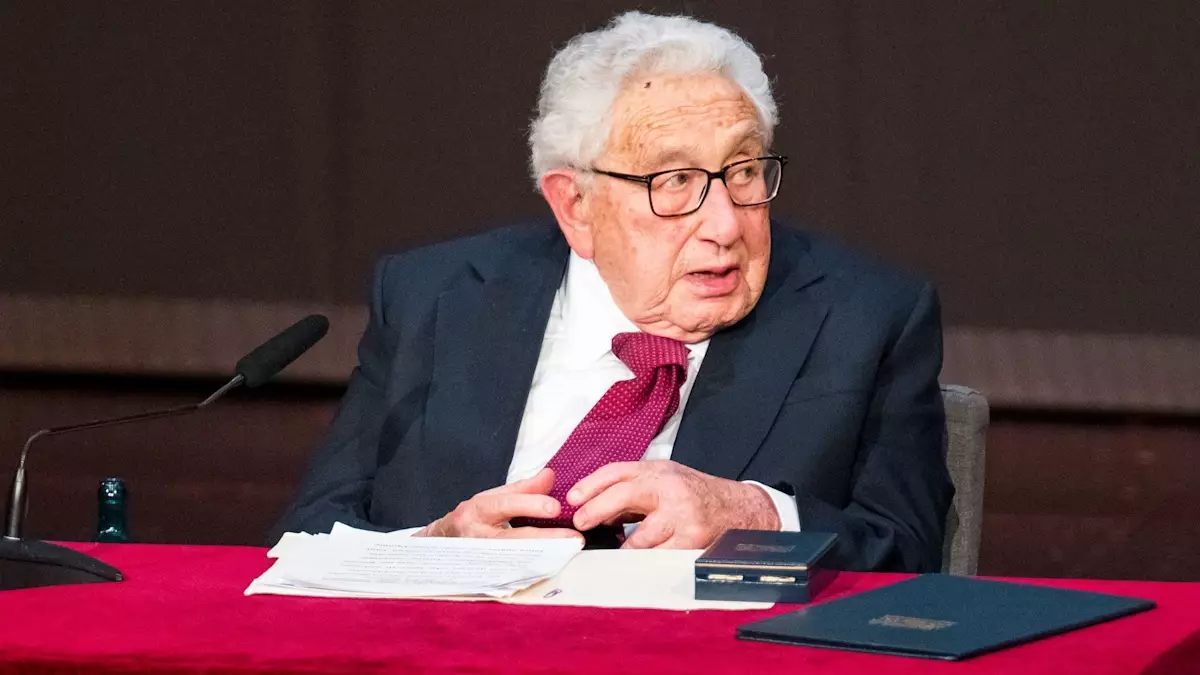Henry Kissinger, a Nobel Peace Prize laureate, recently passed away at the age of 100 at his home in Connecticut. With his death, the world bids farewell to a man who played a pivotal role in shaping US foreign policy under Presidents Richard Nixon and Gerald Ford. Born in Germany in 1923, Henry Kissinger fled with his family to the United States in 1938 to escape Nazi persecution. He later became a naturalized US citizen, served in the Army during World War II, and pursued an illustrious academic career at Harvard University. Throughout his life, Henry’s influence in world affairs was profound.
As Secretary of State and National Security Adviser, Henry Kissinger orchestrated several landmark diplomatic achievements. These include opening diplomatic relations with China, negotiating US-Soviet arms control talks, fostering peace between Israel and Arab nations, and negotiating the Paris Peace Accords with North Vietnam. Despite these accomplishments, his tenure was not without controversy. Henry faced criticism for his support of anti-communist regimes in Latin America and his involvement in the secret US bombing campaign in Cambodia. Moreover, his receipt of the 1973 Nobel Peace Prize, shared with North Vietnam’s Le Duc Tho, sparked resignations within the Nobel committee and remains one of the most debated awards in the prize’s history.
Known for his distinctive voice and formidable intellect, Henry Kissinger was a figure of both admiration and contention. President Ford once described him as a “super secretary of state,” but critics often accused him of self-assurance bordering on egotism. Beyond his policy influence, Kissinger became a cultural figure, recognized for his relationships with celebrities and his portrayal in the media as a charismatic ladies’ man.
After leaving government service, Henry Kissinger established a consulting firm, offering his expertise to corporate and political leaders. He remained an influential voice in international relations, authoring books and serving as a commentator on global affairs. Despite advancing age, he continued to be questioned about past US foreign policy decisions in certain countries.
Henry Kissinger’s personal life was as storied as his public one. He married twice, first to Ann Fleischer, with whom he had two children, and later to Nancy Maginnes, an aide to New York Governor Nelson Rockefeller. Kissinger’s legacy is one of complexity and contradiction – a man who shaped the geopolitical landscape of the 20th century and left an indelible, though sometimes contentious, mark on history.
As the world pauses to reflect on his century-long life, the impact of Henry Kissinger’s diplomatic strategies and decisions will continue to be studied and debated for generations to come. Regardless of one’s view of him, there is no denying that Kissinger’s influence on global politics and diplomacy was profound. It is a legacy that will be examined and scrutinized as future scholars delve into the complexities of international relations. Henry Kissinger may be gone, but his legacy lives on, reminding us of the power and complexities of diplomacy in an ever-changing world.

